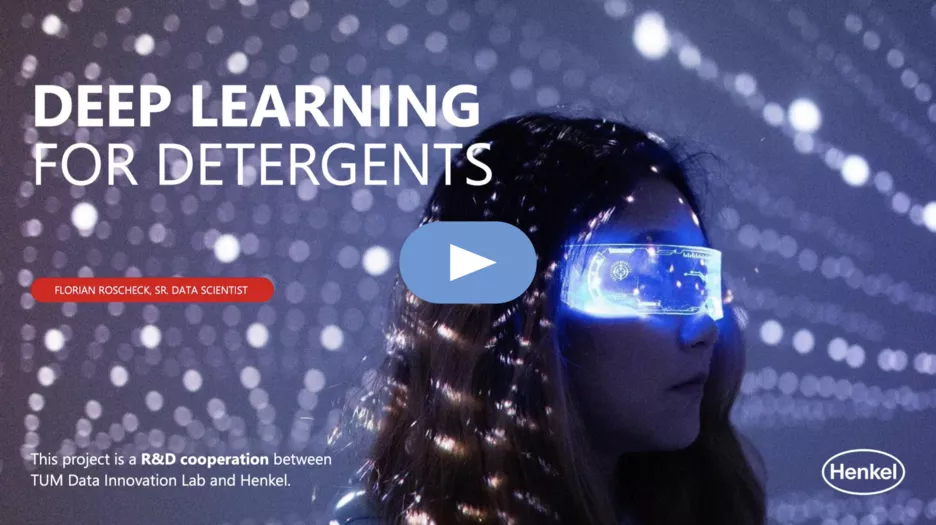Deep Learning for Detergents
Results: Final report as PDF
- Sponsored by: Henkel AG & Co. KGaA
- Project Lead: Dr. Ricardo Acevedo Cabra
- Scientific Lead: Florian Roscheck
- TUM Co-Mentor: Cristina Cipriani
- Term: Summer semester 2023
- Application deadline 29.01.2023

Henkel operates worldwide with major brands, innovations and technologies in its business unit Adhesive Technologies and Consumer Brands. Thanks to strong brands such as Persil, Schwarzkopf and Loctite, Henkel holds leading positions in both industrial and consumer markets. Headquartered in Duesseldorf, Henkel is one of the most internationally aligned German-based companies in the global marketplace. With more than 52,000 Henkel employees from across the world, we know that our global team consisting of different backgrounds, experiences, skills, knowledge, and approaches to creativity is the foundation for our success. As sustainability leaders, we aim to pioneer new solutions for sustainable development while continuing to shape our business responsibly and increase our economic success. This ambition encompasses all our company’s activities – along the entire value chain.
Project
At Henkel expert scientists work on developing detergents daily. New liquid detergent formulations are stored up to several months to assess their stability. Experts currently spend significant time assessing the formulations. The aim of the project is to accelerate the liquid detergent research by developing an automated system. This system would cluster and predict the behavior of liquid detergents in large-scale storage tests via images to supercharge product quality control capabilities.
During this project you will:
- Interact with Henkel experts to acquire domain knowledge (at the beginning and throughout the project)
- Build image recognition system to cluster stored liquid detergents by appearance
- Enhance image recognition system to distinguish between successful and unsuccessful liquid storage tests
- Extend system to predict liquid changes over time
- Bundle system into production-ready solution for use in Henkel’s computational infrastructure, e.g. an API
The data available for the project: 4k+ relevant, consistent, high-quality storage test images with their respective human-assigned labels and metadata
Methods:
- Building image processing, segmentation, and recognition pipelines, applying deep learning in Python, e.g. via PyTorch or TensorFlow
- Engineering image- and neural-network-based features for time series prediction
- Building and deploying machine learning solutions into production
- Agile project management, version control, and development collaboration platforms like Azure DevOps
Important notice
Accepted students to this project should attend online workshops at the LRZ in April 2023 before the semester starts, unless they have proven knowledge. More information will be provided to students accepted to this project.
